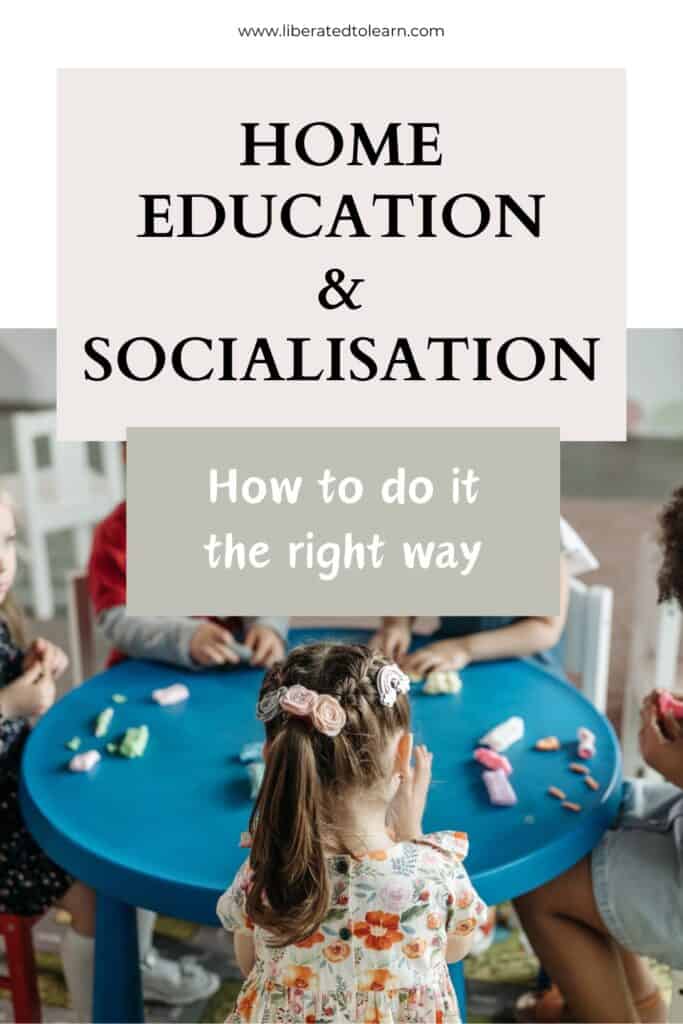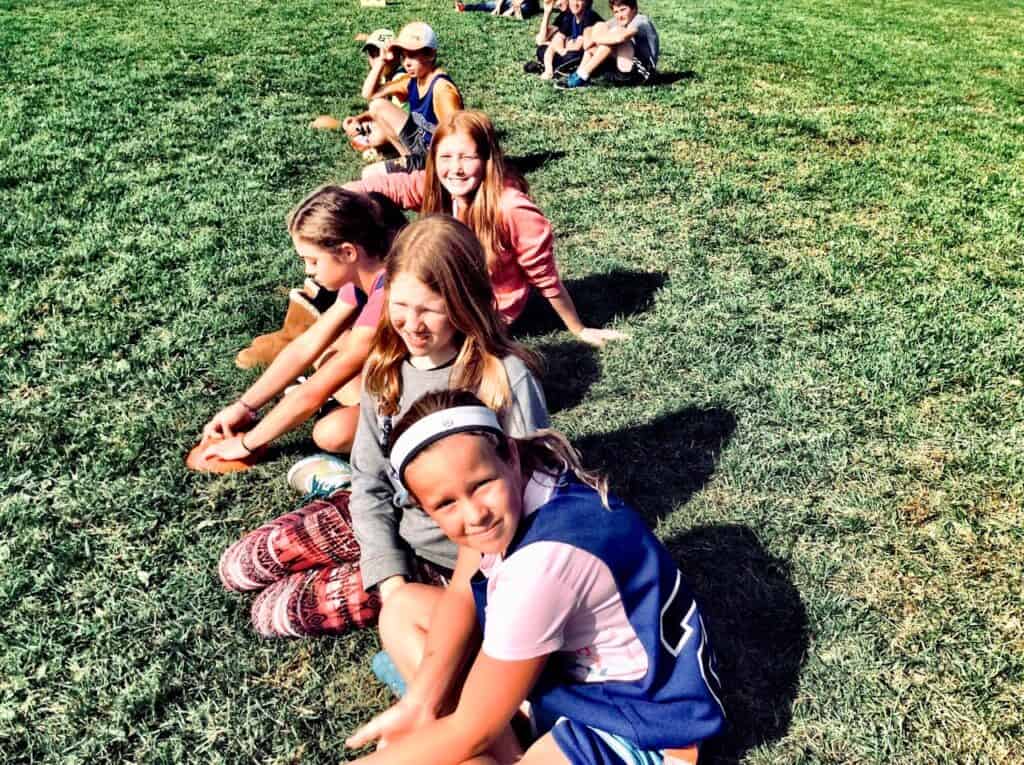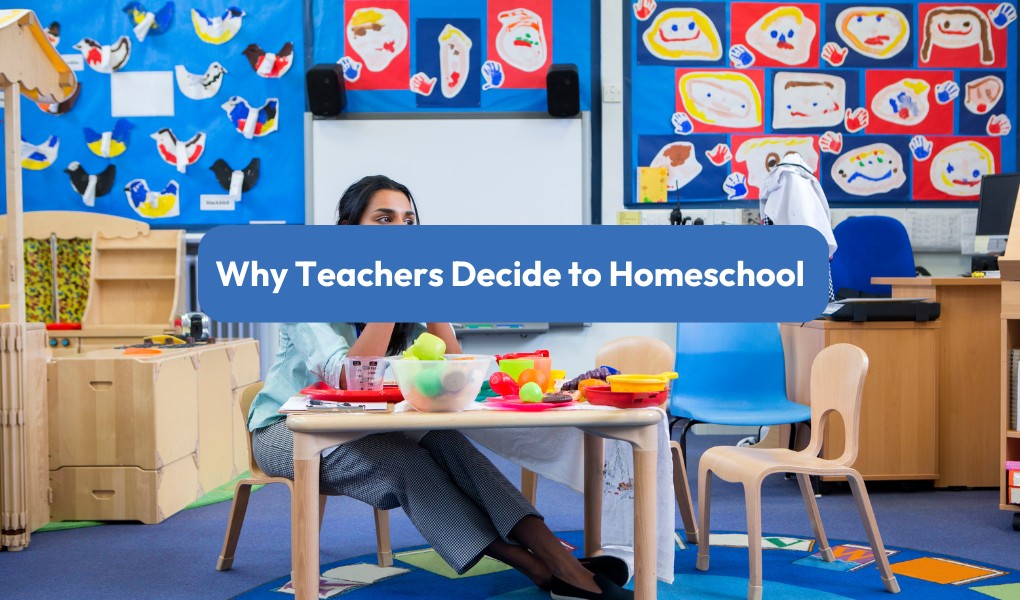There is quite a bit of misconception around Home Education and socialisation. Many people believe that home educated children do not get enough socialisation, and those who are home educating worry about how they can socialise their children properly.

Table of Contents
There is quite a bit of misconception around Home Education and socialisation. Many people believe that home educated children do not get enough socialisation, and those who are home educating worry about how they can socialise their children properly.
Well, we’re here to tell you that home educated children can socialise just as much as those in school — if not more. And if you need some socialisation tips, we’ve got 10 ways you can socialise your home educated child. The thought of socialising, and actually doing it, is a common worry and it’s probably one of the most brought up topics when considering Home Education. But rest assured it doesn’t need to be as difficult as it’s made out to be.

Why People Worry About Home Education and Socialisation
“How will they socialise if they’re not in school?”
You’ve probably heard this question one too many times, but that doesn’t always make it easy to answer it. Don’t worry, by the end of this, you’ll have no problem responding to questions about socialising your home educated child. But why do people ask this question and worry so much about home educated children being able to socialise? Let’s break it down.
- There is a misconception that home educated children do not socialise as much as those in a public school.
- People may think that home educated children do not have many friends.
- It is believed that children in school socialise a lot more.
- Home Education is misunderstood.
- There are worries that home educated children could become isolated.
Socialising: Home Education vs. School
Why Home Educated Children May Socialise Better Than Those in School
As mentioned, it’s often believed that children in school socialise better than home educated children, but is that really the case? If we think about it, there are many reasons why home educated children actually have better and more valuable social experiences than those in school. Here are some of the reasons why:
- Home educated children often have more opportunities to socialise than children in public schools.
- Home educated children have more experiences and face new and different environments and scenarios every day.
- Home educated children socialise and mix with people of all different age groups.
- In a public school, children are with the same group of people in the same environment for six hours a day, five days a week.
- Socialising in school does not happen organically.
- Socialising is often forced and children will not always make genuine connections and friendships.
- Home educated children socialise and make friends more organically.
- Children in school are told when and where they can socialise and for how long.
- Home educated children can socialise anywhere at any time, and it’s all in their control and on their own terms.
- More bullying happens in school.
- There is less exposure to bullying when home educated, but if experienced it can be dealt with more effectively.
- Home educated children can have more positive social experiences.
Ever heard the phrase, “You’re not here to socialise” from a teacher in school? Well, isn’t that funny.
So, if it’s the socialising aspect that is making you doubt Home Education, hopefully this puts you at ease. Now let’s look at how you can socialise your home educated child.
How to Socialise Your Home Educated Child: 10 Ways
1. Join a Home Education group/co-op
One of the best ways to get out there and help your child socialise is to join a Home Education group or co-op. You’ll meet like-minded people who will often share the same values as you because everyone is there for the same reason — to home educate and meet new people! At these groups, children socialise in a more natural environment as they are often held outdoors, and they are more likely to find friendships of value because of shared interests and doing things together. More importantly, when joining a Home Education group, you are also joining a community. There’s no pressure and everyone is, or has been, in the same boat.
2. Youth clubs, classes and activities
Joining a youth club and going to various classes and activities is the best opportunity for children to socialise and have fun. When doing something of interest, they’re more likely to socialise with other individuals who share the same interests. So, whether it be dance or sport, art or something else, see what clubs and classes are out there for your child. If at first they’re anxious to try a club out on their own, see if you can find a friend that will go with them so that they feel more comfortable.
3. Get your child out and about
You can’t socialise if you don’t get out and about, so that’s the most important thing. Whether it’s going to the park, a coffee shop or a museum, getting your child out in different environments and having natural interactions with other people all helps with socialising. And don’t let transport limit you either. If you don’t have a car, get the bus, train or even cycle. It’s way more fun for your children!
4. See friends and family
If you’re fortunate enough to have friends and family close by, make the most of seeing them on a regular basis. Socialising always starts with those closest to you. It’s how children form strong bonds and learn how to treat each other. It’s also good for your child to have one-on-one time with other family members and to go round a friend’s house without you there. And arranging frequent days out with friends who also have children is a great way for everyone to socialise together.
5. Online community or Pen pals
With so many apps out there and modern technology all around us, a lot of socialising happens online now. There are various groups and communities online for different age groups, and of course there is social media when you deem it appropriate for your child.
If you’d rather your child not be online too much or on social media, have them write letters to people around the world. Pen pals connect people from all different backgrounds and children can learn so much about other cultures and ways of life through exchanging words. Even though they’re not physically socialising with someone else, they’re still communicating with other people and learning how to interact in different ways.
6. Take part in community projects or volunteer
As well as helping the community, your child will be exposed to different groups of people and allow them to work together on a project. This unity and clear purpose is great for socialising and also rewards children with an even greater sense of achievement.
7. Let them be independent
As your child gets older, they’re going to become more independent, so the best thing you can do is trust them and let them choose how and when they’re going to socialise. Having more independence enables a child to make their own choices and they have the freedom to go to places and meet new people on their own terms.
8. Let your child host an event
If your child feels more comfortable at home, see if they would be interested in hosting their own event for friends and family. It could be a meal, a get-together or something more specific. Whatever it is, make sure your child has control in planning it. There’s no easier way to socialise than in the comfort of your own home.
9. Expose your child to realistic social situations
Another great way, and perhaps one of the most important ways, to socialise your home educated child is to expose them to realistic social situations. It’s hugely beneficial for them to experience life as it is and the different daily scenarios we face. When going to cafes or restaurants, get them to order or ask for the bill. Take them into a bank so that they can discuss money and get their own bank account. Get them to do the shopping and pay for it. There are various social situations that your child can be exposed to, which will help them gain confidence and build their socialisation skills.
10. Travel
Lastly, perhaps the most fun way of socialising is to travel! So, wherever and whenever possible, travel with your child, expose them to different cultures and countries, or even get away camping somewhere more local. It gives children unique opportunities to meet new people and gain new experiences. The most exciting friendships are often found on holidays and whether through social media or letters, children can always keep in contact.

6 Socialisation Tips
The thought of socialising can be quite daunting for both adults and children, especially those who are more introverted. But being introverted doesn’t mean that your child doesn’t want to socialise; they might just find it a bit harder. If that’s the case, here are some socialisation tips that might help you and your child out.
1. Take it one step at a time
There’s no need to rush your child into socialising and joining as many groups and clubs as possible. Instead, take it easy and perhaps join one or two groups to start with.
2. Have your friends and family help
There’s no one better to rely on than friends and family, and because your child knows them, they’ll be more comfortable going out and socialising with them.
3. Attend groups and events with someone your child knows
Some children may socialise better when they’re with someone that they know. So, to help your child feel at ease when joining a new group, going to an event or whatever it may be, try and have a friend or relative go with them.
4. Don’t force your child to socialise
There’s nothing worse than being told, “You should go and play with them” or “Go and talk to them.” Instead of children feeling encouraged to socialise, this makes them feel more reluctant because they’re essentially being forced.
5. Know that your child will socialise when they’re ready
The most important thing to remember is that children will socialise when they’re ready and they’ll be much happier to do it on their own terms. The last thing they need is any pressure, so rest assured that they’ll find their social butterfly wings eventually.
6. Make sure your child is actually happy doing what they’re doing
Children are more likely to socialise in an environment where they feel happy. If they’re not enjoying themselves or are somewhere where they don’t want to be, they’re not going to want to socialise at all. So, always talk to your child, listen to them and make sure they are happy.
Remember, socialisation happens all the time, even if we’re not aware of it. You might feel pressured to socialise your child more, especially if you notice other children socialising a lot, but know that everyone is different and they all socialise differently.
If you need some more advice or just want a good chat, feel free to reach out to us!
m@liberated
Want more from Liberated to Learn?
Subscribe to stay updated about new posts, resources and giveaways!












